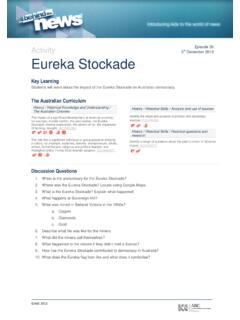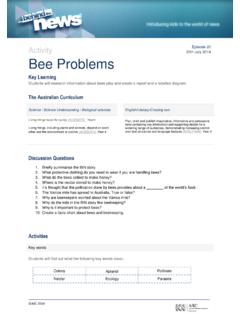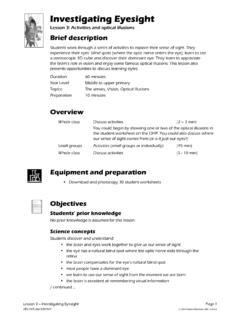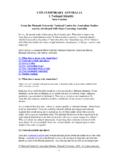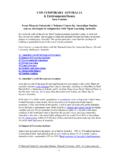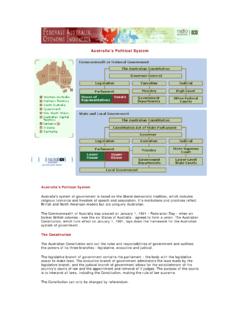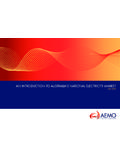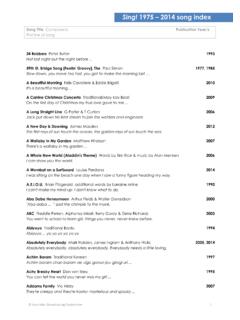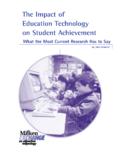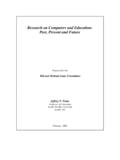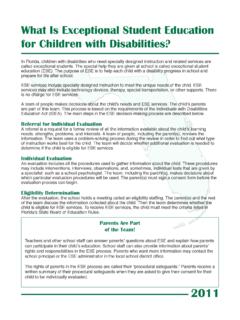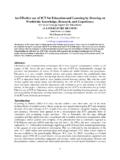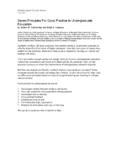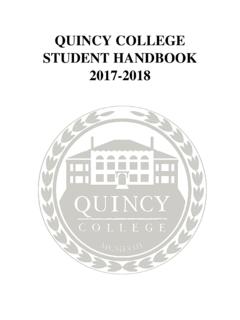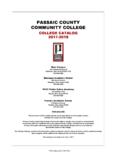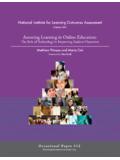Transcription of Responses to student plagiarism in higher …
1 4 International Journal for Educational Integrity Vol. 10 No. 1 June, 2014 pp. 4 20 ISSN 1833-2595 The International Journal for Educational Integrity is available online at: Responses to student plagiarism in higher education across Europe Irene Glendinning Coventry University, UK Keywords: student plagiarism , academic integrity, plagiarism survey, research ethics, academic conduct, European higher Education Previous versions of this paper have been presented at the 5th International Integrity and plagiarism Conference, Newcastle-upon-Tyne, UK, 16 18 July 2012 and the plagiarism Across Europe and Beyond Conference, Brno, Czech Republic, 12 13 June 2013.
2 The current version represents a substantially revised and updated account of the research undertaken by the IPPHEAE project. Abstract A significant amount of research has been undertaken in response to high levels of student plagiarism in higher education institutions (HEI). New models have emerged over the last decade for strategies and systems for detection, penalties and mitigation, based on deeper understanding of the underlying reasons behind student plagiarism . Most research has been initiated by academics from English speaking countries, particularly from the UK, North America and Australia.
3 When the proposal for the Impact of Policies for plagiarism in higher Education across Europe (IPPHEAE ) project was developed during 2009 very little research had been conducted about the policies for academic integrity adopted by HEIs in the majority of countries in Europe. IPPHEAE, funded by the European Commission (2010 2013), included a comparative study of policies and procedures in place in HEIs across 27 European Union (EU) member states for handling aspects of academic integrity, focusing specifically on bachelor and master s levels. The survey instruments were on online questionnaires, student focus groups, structured interviews and analysis of documentary evidence, designed with a view to capture a range of quantitative and qualitative Responses from different perspectives.
4 Almost 5,000 Responses were captured for the survey, mainly from online questionnaires, made available in 14 languages. Different questions were asked of students , teaching staff and senior managers, to determine how well institutional procedures were understood, to what extent they were operating as intended and whether there was consistency of outcomes within and between institutions. Interviews with researchers and people associated with national bodies and agencies responsible for higher education (HE) quality or academic integrity explored broader perspectives on issues such as national policies and how Responses to plagiarism aligned with policies for quality and standards.
5 This paper presents results from the survey that focus specifically on institutional policies, highlighting examples of good practice and also areas of concern. The findings suggest that different approaches should be adopted according to the maturity of existing policies and systems in all the countries surveyed, to promote more effective assurance of quality, standards and academic integrity. International Journal for Educational Integrity 5 International Journal for Educational Integrity Vol. 2 No. 2 December 2006 pp. xx-xx ISSN 1833-2595 Introduction This paper reports on research undertaken for the project Impact of Policies for plagiarism in higher Education Across Europe (IPPHEAE), which was funded through the European Commission s Lifelong Learning Programme, under the Modernisation of higher Education agenda during 2010 2013.
6 The project was designed to investigate how student plagiarism was being addressed in higher Education Institutions (HEIs) throughout 27 countries of the European Union (EU). The research was designed to fill the gap in the knowledge about policies and procedures for maintaining standards of academic integrity at bachelor and master s levels in different parts of Europe. The survey explored whether policies were being applied as intended and whether they were fit for purpose. However, the project was also concerned with applying knowledge and ideas emerging from the research and sharing examples of effective strategy, policies, procedures and resources, to influence regions and institutions where there was seen to be less engagement with challenges presented by student plagiarism and academic misconduct.
7 This paper reports on the EU-wide IPPHEAE survey, detailing the research methodology, design and implementation. Results about institutional policies are presented, with reference to some of the data collected from different sources. The key findings are discussed together with a summary of the recommendations and conclusions for EU overall. IPPHEAE project context The IPPHEAE project operated from October 2010 until September 2013, with a consortium of five institutions. The author was principal investigator, leading a team from Coventry University (CU), UK, and partners from Lodz University of Technology, Poland, Mendel University, Brno, Czech Republic, Aleksandras Stulginskis University, Lithuania (ASU) and University of Nicosia, Cyprus.
8 UK plagiarism expert, Jude Carroll, contributed to the project in a consultancy capacity. A challenging aspiration of the IPPHEAE project was that Influencing national and local strategy will be much harder, but not impossible . Research activities for the project comprised three major strands: a cross-Europe survey of HEIs, the subject of this paper; development of software tool ANTON for searching a national e-library archive; and in-depth case studies of interventions, strategies and policies in selected countries and HEIs across the EU. Review of literature The focus of earlier research into plagiarism and academic dishonesty has spanned reasons for plagiarism , investigations about attitudes and also policies for addressing plagiarism , including the implementation of digital tools.
9 Earlier research into policies was initiated by academics in English speaking countries, particularly UK, North America and Australasia (for example, Bretag et al., 2011; East, 2009; Tennant & Duggan, 2008; Tennant & Rowell, 2010). Some researchers, notably McCabe, have particularly focused on the attitudes to plagiarism in North America (2005) and Canada (Abasi & Akbari, 2008). A few researchers have investigated plagiarism in European countries, particularly Sweden (Carroll & Zetterling, 2009, Pecorari & Shaw, 2012; Razera, Verhagen, Pargman, & Ramberg, 2010). Hayes and Introna (2005) explored cultural influences to plagiarism in international students studying in an English university, drawing comparisons between students from UK, Asia, Greece and China.
10 International Journal for Educational Integrity Vol. 10 No. 1 June, 2014 pp. 4 20 ISSN 1833-2595 6 International Journal for Educational Integrity Vol. 2 No. 2 December 2006 pp. xx-xx ISSN 1833-2595 Procedures and policies in UK HEIs are the subject of several publications (Carroll, 2006; Macdonald & Park, 2004; Morris, 2011; Neville, 2010), which commonly advocate a holistic institutional response to academic integrity. The evidence from this wide range of research has increased understanding of why plagiarism occurs, proposed different methods for dealing with different breaches to academic integrity and suggested what can be done to encourage good scholarship.
